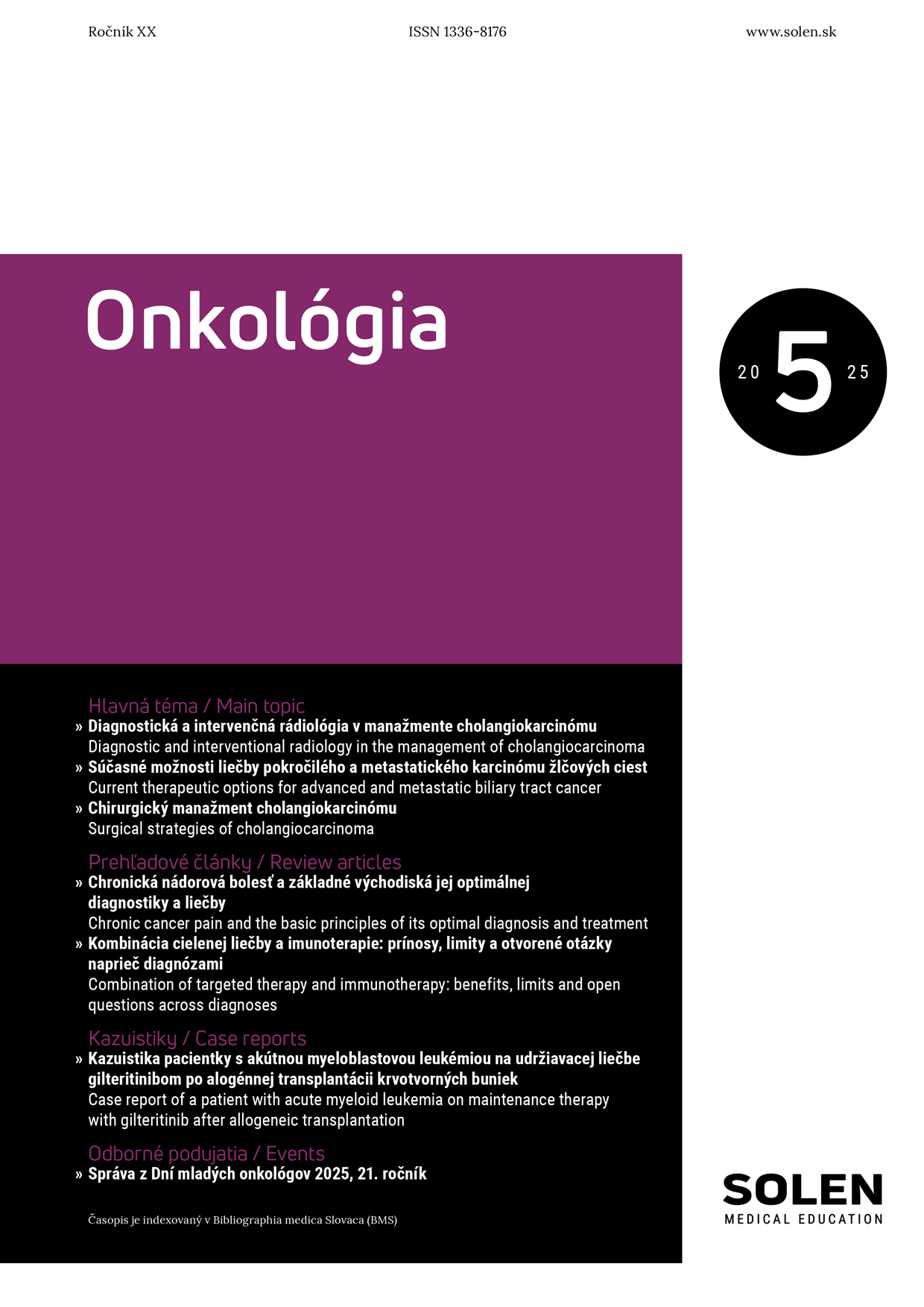Onkológia 4/2023
Exon 20 insertions and other uncommon EGFR mutations in non-small cell lung cancer
Targeted therapy is a cornerstone of the therapeutic algorithm for advanced EGFR-mutated non-small cell lung cancer. Uncommon EGFR mutations are all mutations except the classic EGFR mutations (deletions on exon 19 and the L858R mutation). It is a heterogeneous group, sensitivity to the known three generations of EGFR tyrosine kinase inhibitors (TKIs) is different, generally lower. The major subgroup are insertions on exon 20, which even show resistance to known TKIs. Currently, the standard of treatment is first-line chemotherapy with platinum, while the importance of immunotherapy in first-line is unclear. A new registered second-line drug for exon 20 insertions is amivantamab, a bispecific anti-EGFR and anti-MET monoclonal antibody, with a response rate of 40%. For rare point mutations G719X, L861Q and S768I, second and third generation TKIs, i.e. afatinib and osimertinib, are the recommended treatment. The T790M mutation rarely occurs primarily (de novo), mostly in complex mutations with classical mutations. For T790M, the recommended treatment are third-generation TKIs (osimertinib), which were designed for it.
Keywords: non-small cell lung cancer, uncommon EGFR mutations, exon 20 insertions

















